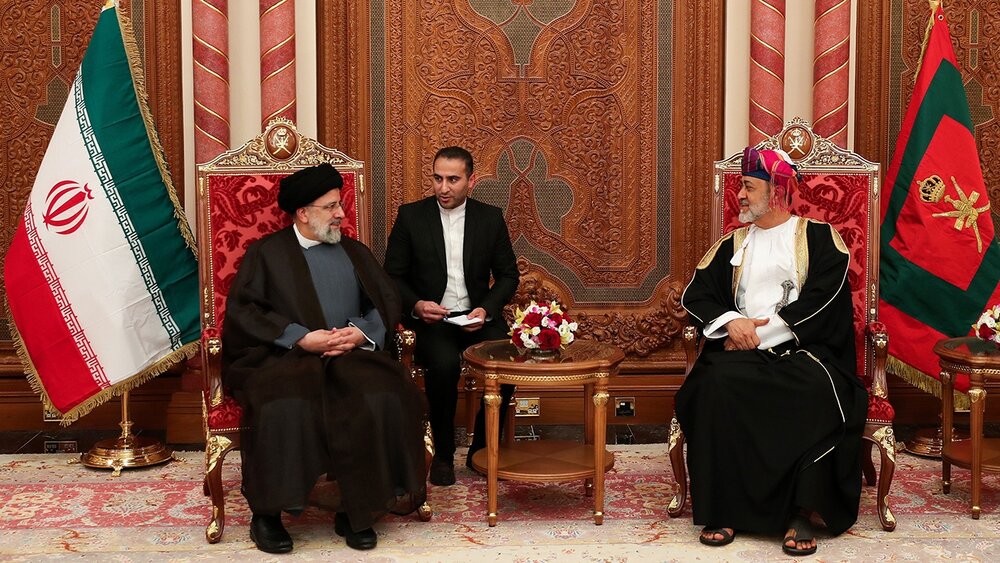Iran’s president steps up economic diplomacy with Oman visit

TEHRAN- President Ebrahim Raisi is stepping his economic diplomacy a notch up with a trip which is believed to play a crucial role in expanding relations with the Persian Gulf and Sea of Oman littoral states.
The president paid an official visit to Oman with which Iran has its longest sea border and the best of enduring relations between the Persian country and an Arab state.
Over the past 50 years, the two countries have moved on a trajectory of sustained coexistence and mutual respect in their diplomatic relationship, irrespective of occasional hiccups in ties between Iran and some Arab states of the region.
Last year, Iran and Oman recorded bilateral trade of $1.3 billion, but they are looking to make maximum use of their potentials in various sectors of economy and investment opportunities to raise it to new highs.
Ahead of the visit, Iran’s Oil Minister Javad Oji reached an agreement in Muscat to revive a long-stalled project to lay an undersea pipeline to carry gas to Oman.
The project dates back to 2013 when the two countries signed a deal, valued at $60 billion over 25 years, for Iran to supply gas to Oman through an undersea pipeline.
Currently, some 2,710 Iranian companies are registered in the Sultanate of Oman, 1,163 of which are 100 percent Iranian owned, according to Omani media reports.
President Raisi seeks to promote trade with neighboring countries instead of waiting for Western powers to ease the U.S.-led sanctions regime against Iran.
He has vowed to prioritize “economic diplomacy” to boost investments. His administration is trying to explore preferential trade agreements, diversify imports, encourage joint ventures, and set up trade promotion offices in Iran’s 15 neighboring countries.
To this end, Raisi has called for strengthening regional bonds especially in the Persian Gulf region.
This was the Iranian president's fifth foreign trip in the nine months since coming to office during which several MOUs and trade agreements were clinched.
The visit was decisive, sensitive and effective which can pave the way for further improvement of Iran's relations with other Persian Gulf states at a time of the most draconian sanctions on Iran.
Given Iran's unparalleled relationship with Oman and the two countries' joint management of the Strait of Hormuz as the most important highway for shipping, transportation and transfer of world energy, further strengthening of this cooperation can also play a crucial role in boosting security in the region.
